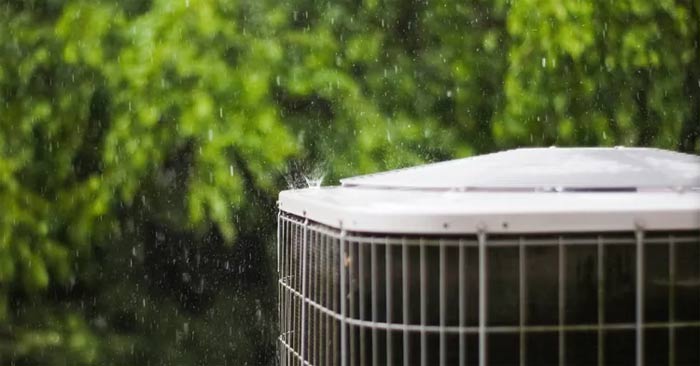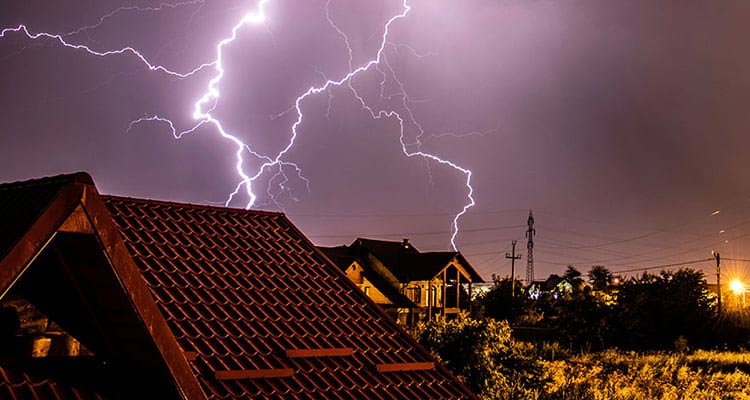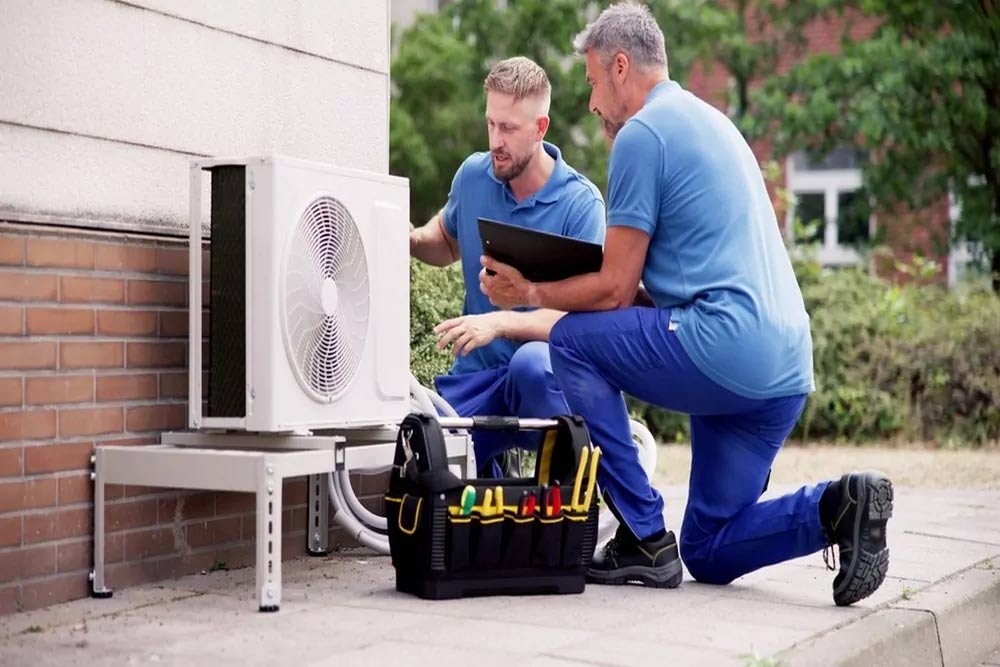Why should you turn off the air conditioner during a storm?
Many people use air conditioners to cool down in the summer, but using air conditioners during thunderstorms risks damage from lightning strikes, overvoltage, and even serious damage.

HVAC experts advise why you should avoid using your air conditioner during summer storms and what can happen if you don't turn it off.
Should you turn on the air conditioner during summer storm season?
If you see and hear thunder nearby, you should turn off the air conditioning at the thermostat and turn off the circuit breaker for the air conditioning system at the electrical panel, says Danny Pen, an experienced plumbing and HVAC expert and President of New Era Plumbing & HVAC.
" Even if you have a surge protection system, you still need to turn off your air conditioning during storm season ."
Running the air conditioner during hurricane season does not guarantee that the air conditioning unit or electrical system will not be affected, but it does increase the risk of damage to electrical components and electrical systems from lightning strikes, flooding, and flying debris.

What happens if you leave the air conditioner on?
If you choose to leave your air conditioner on during a summer storm, you run a higher risk of damage to your air conditioner from direct lightning strikes and power surges.
' A lightning strike can damage an air conditioner's compressor, and replacing the compressor can sometimes cost almost as much as a new outdoor unit ,' Pen says. ' In some cases, it can burn out the entire air conditioning system, burn out wiring, and even destroy anything else that's turned on or plugged in. '
Flooding and blown debris can also cause more damage to an on system than to an off system, especially if any debris blocks airflow or damages the cooling fins or other parts of the machine.
High voltage surges can build up, causing large heat waves that resistors cannot prevent, and can melt plugs as well as capacitors, compressors, outdoor fans, and control panels.
The damage can extend beyond the air conditioner to other parts of the heating and cooling system, including the thermostat. A low-voltage short circuit can even destroy the heater control panel.
Is there a safety setting for hurricanes?
There is no setting that allows you to turn on your air conditioner during a storm to protect against lightning strikes and electrical overloads, so it is best to turn off your air conditioner until the storm passes.
The reason you need to turn off your air conditioner has nothing to do with attracting lightning, but rather to protect your equipment from damage caused by an electrical overload if lightning strikes nearby. An electrical overload can travel through your home's electrical circuits and damage any appliances that are plugged in.
What to do before and after a summer storm
- If you know a storm is coming within the next 24 hours, you can set your air conditioner temperature a few degrees lower in advance to keep your home comfortable when you definitely need to turn off the air conditioner.
- After turning off the air conditioner, you can also cover the unit with a tarp or plywood to protect it from flying debris during heavy storms.
- After the storm has passed, inspect the unit for damage before turning it back on. Clear away any debris that may be hiding damage or blocking airflow through the unit.
- Consider having your air conditioner inspected by a professional if there is water inside or around the unit to ensure there is no permanent damage that could harm the electrical system if the unit is turned on.

Other times you should avoid turning on the air conditioner
Hurricanes aren't the only times you should avoid running your air conditioner. It's also helpful to turn it off when you're going away for a few days and during wildfires or heavy fog, as air conditioning can draw dirty air into your home.
Turning off the air conditioner during a power outage is also necessary because power surges can occur when power is restored and can damage the air conditioner.
You should read it
- ★ 4 ways to turn on the air conditioner before going home
- ★ The best way to hang the air conditioner heater
- ★ How many useful features have you overlooked on air conditioning?
- ★ Certain locations must be avoided when installing air conditioners
- ★ How to use air conditioner control, Aqua air conditioner accurately, save electricity